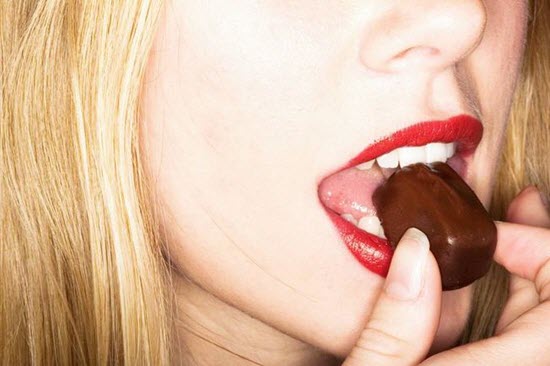
Recently, someone with a self-proclaimed Sweet Tooth asked me the difference between that and sugar addiction. The question brought out the geek in me, so I decided to share the information with you.
Why We Like Sweet
We”™re hardwired to like sweet. In fact, a fetus will increase its swallowing of amniotic fluid if the fluid is artificially sweetened.
One author attributed our liking for sweet tastes to evolution. Many plants that seem edible contain substances that can poison and even kill us quickly. Because that didn”™t happen with sweet foods, they became “safe.”
Brain chemicals have a lot to do with liking sweet. Endorphins (beta-endorphin), dopamine and serotonin are natural feel-goods that make us enjoy and want the sugary foods that trigger them.
So we like sweet stuff. But some people — and I”™ve shared before that I was definitely one of them — go beyond liking sweet foods into a compulsion to eat them.
Sugar Addiction Defined
Addiction criteria apply very well to sugar addiction. Let”™s look at the section on Substance Abuse Disorder from the Diagnostic and Statistical Manual of Mental Disorders, Fifth Edition (DSM-5).
DSM-5 criteria for addiction are clustered in 4 groups, but are essentially the same as DSM-IV criteria. I”™ve simply listed the criteria below. The examples given are just a few of many.
Some criteria may seem to apply only to illegal drugs, such as spending a great deal of time obtaining them. Sugar is available virtually everywhere, in unlimited quantities, and inexpensively, but stay with me on this.
Criteria for Substance Abuse Disorder
1. Taking more of the substance or for longer than intended
Lack of control over what or how much one is eating characterizes binge-eating disorder. Chocoholics describe an inability to resist, moderate, or stop eating chocolate. Clients keep eating cake, one slice after another, despite planning to stop after one piece.
2. Unsuccessful efforts to stop or limit use
Dieting and weight cycling are found in binge eating and other eating disorders. Secret-eater chocoholics try unsuccessfully to reduce intake of chocolate, then relapse and overeat it.
3. A great deal of time spent obtaining, using, or recovering from use
80% of chocoholics state that chocolate interferes with their lives in some way. Purging behaviors might take increasing time. Excessive exercise, one example, could interfere with important activities or occur despite injury.
4. Craving the substance
Craving, an intense desire for a substance, is a common response to withdrawal or abstinence. Cravings are stronger after high levels of intake but can occur in other conditions. Cravings identify the substance that will relieve them — what you crave will take away the craving. (That”™s a poor way to deal with cravings, and I”™ve covered the topic in previous posts.)
5. Failure to fulfill major obligations due to use
6. Continued used despite social problems caused or exacerbated by use
7. Giving up or reducing important activities because of substance use
These issues could show up as self-isolation; eating alone due to embarrassment over the eating; refusing to wear bright colors, form-fitting outfits or swimsuits; refusing to attend social events, eat in public, be nude in front of others, make love with lights on, look in the mirror, go to a gym with mirrors, or even go to a gym.
8. Recurrent use in hazardous situations
A client almost had a car accident because she ran into a store to buy candy and “couldn”™t get the chocolate into (her) mouth fast enough.” Hypoglycemia can cause hazards.
9. Continued use despite physical or psychological problems that are caused or exacerbated by substance use
Problems may include obesity, diabetes, hypertension, cardiovascular disease, and other illnesses. Chocoholics eat chocolate despite migraines or feeling sick.
10. Tolerance to effects of the substance (needing more to get the same effect)
11. Withdrawal symptoms when not using or when using less
These last two criteria are quite complex and merit their own article. The DSM-IV and other research say both may be linked with addiction, but addiction can occur without them. So let”™s leave it here for now.
To that guy who loves to tell me that drug info doesn”™t apply to food: Sugar isn”™t food; it”™s a drug.
Several journal articles, often by the same small group of researchers, “prove” sugar does nothing bad. In most cases, the sugar industry paid for the research. Don”™t get me started.
- New Year’s Resolutions: A Sugar Addict’s Survival Guide - April 15, 2024
- Motivation vs. Enthusiasm - October 12, 2023
- Why Exercise Shouldn’t Be Just One Thing - November 9, 2022
